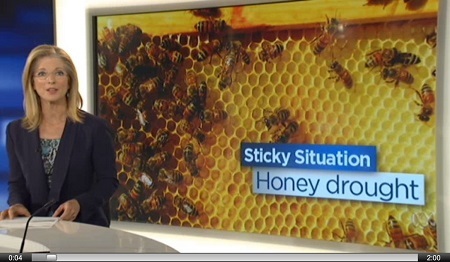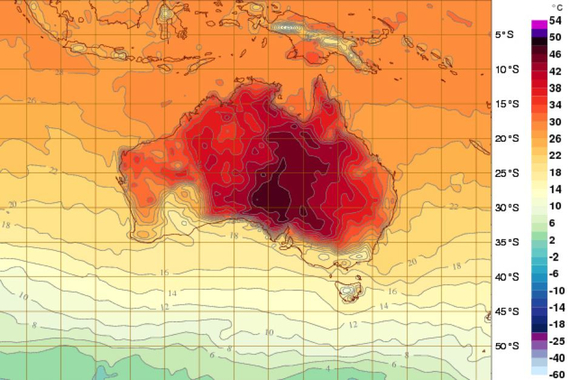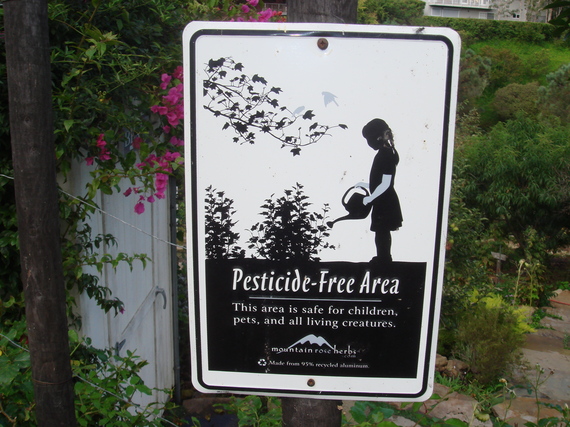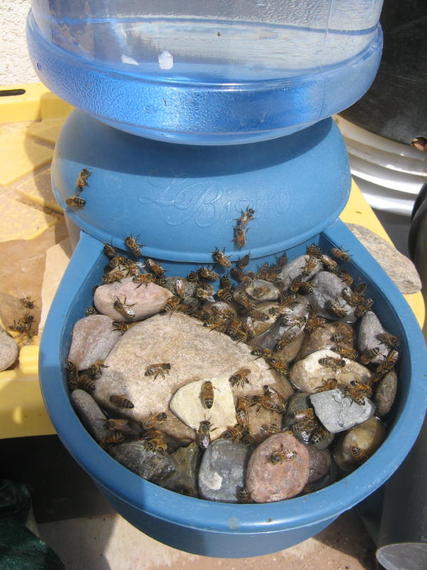As if the convincing evidence of 500 billion honeybees lost worldwide is not enough to rope in the use of 5 billion pounds of insecticides annually, new research shows that, in combination with climate disruption, the bees are dying even faster. One-third of these insecticides are neonictinoids (neonics).
Join Earth Dr Reese Halter for another segment of SOS and discover the latest information on bees and neonics and what you can do to help our bees.
Twenty thousand kinds of bees pollinate over 80 percent of all flowering plants or in excess of 200,000 species on Earth including providing food to feed 7.2 billion humans. Neonics, the newest class of insecticides, are a potent neuro toxin. Bees exposed to it lose their minds and shake to death, analogous to humans afflicted by both Alzheimer's and Parkinson's disease.
Since 2006 honeybees have been dying at a staggering rate. Scientists have dubbed this crisis Colony Collapse Disorder or CCD because all that remains in the colony is the helpless queen - 100,000 femaie workers abandon the hive and die. Photo credit: inhabitat.com
By the way, we should be very worried about the bees because, like human beings, their brains are wonderfully advanced. For instance, new research revealed that bees playing video games deliberately choose what they want to pay attention to or "top-down attention," stunningly similar to our brains.
The fact that honeybees communicate by dancing is remarkable. Nobel laureate Karl von Frisch (1886-1982) dedicated his life to unraveling many of the mysteries of the honeybee. He was the first researcher to decipher the purposeful and endearing dancing of bees. Photo credit: bbc.co.uk
The health of all bees is of paramount importance for our survival on Earth. Frighteningly, bees worldwide are terribly ill.
Researchers from Harvard University have proved that two widely applied neonics are lethal, even at low doses, for honeybee colonies.
Even more concerning, climate disruption and neonics mixed together, kill bees even faster. These scientists, like so many before them, strongly suggest that neonics are causing bee colonies to collapse.
No continent on Earth has suffered from the wrath of climate disruption more than Australia. The vicious heatwaves and devastating bushfires have taken a brutal toll on not just cattle and sheep, but also bees.
Australia's burgeoning almond industry produces over $331 million annually, but it requires at least 180,000 hives or about 9 billion healthy honeybees and copious amounts of water to reach its targets. The bees in Australia also pollinate apples worth $464 million, pears valued at $102 million, cherries at $96 million and canola crops totaling $1,8 billion. In a warming world both bees and water are becoming scarcer. Photo credit: benefits-of-honey.com
In addition to European honeybees, Australia has 1,600 indigenous kinds of wild bees including my favorite, stingless bees. Last summer's prolonged heatwave (December 2013 to January 2014) was so hot that plants including trees did not flower and beeswax within hives melted from prolonged inferno-like heat. Thirty percent of the commercial bees were wiped out.
As a result of untold billions of bee deaths from lack of forage (flower nectar and pollen) and water -- it was the worst year ever in Australia for honey production. In fact, the largest honey producer, a publicly listed company called Capilano, recorded a 50 percent drop in its output. Instead, the company will import honey from its factories in Argentina, Canada and Europe to maintain international markets, which account for 25 percent of its business. No honey made in Australia will be exported in 2014.
Honey is a powerful antiseptic and renowned for its antibacterial properties. That's why some modern bandage companies line their products with diluted traces of honey. Honey is filled with vitamins and minerals including soluble B1, B2, B6, pantothenic and nicotinic acids, vitamin C as well as high amounts of fat-soluble vitamins E, K and A. Honey also provides us with essential minerals: calcium, phosphorus, potassium, iron, copper, manganese, magnesium and sulfur. Photo credit: abc.net.au
Every Australian will feel the harsh ripple effect of climate disruption. Those that enjoy beer, wine and coffee will pay more. Chocolate lovers, meat eaters and fruit and sandwich consumers, they too will be hit with sharp price increases at the cash registers. Since most beverages, barbecue sauces, breads and breakfast cereals have honey as a main ingredient, the prices at the grocery stores of these items and many others are all set to rise.
Failing to plan for our future is planning to fail.
Scientists from Flinders University, Australia, reported that not only are bees essential for food security, they play an exquisite role as a key indicator of massive climate disruption blanketing Earth.
2013 was Australia's hottest year ever recorded. At 2 degrees (F) above the long-term average it easily surpassed 2005 as the hottest year. Every month in 2013 was 0.9 degree (F) above the normal dating back to the inception of continuous record keeping in 1910. Australia has experienced just one cooler than average year in the last decade -- 2011. Australia experienced the hottest spring on record and on January 2, 2014 South Australian temperatures were in excess of 120 degrees (F). Photo credit: smh.com.au
The valid concern in Australia with bushfires getting larger and more frequent is, "Where will the bees obtain forage for their survival"? It turns out that wild bees are the main pollinators for human crops, too, so this affects everyone. Earlier this past summer in East Gippsland, Victoria, a 374,000-acre bushfire incinerated eucalypt forests that will not return with bee forage for about a decade.
On the other side of the world, an in-depth study found that two-thirds of European honeybee pollen was laced with 17 insecticides, neonics were in many samples. My esteemed colleague Dr Henk Tennekes has detailed the deleterious residual knock-on effects of using neonics in Western Europe including contaminating fresh waterways, killing trillions of soil organisms and rapidly diminishing biodiversity from meadow birds to raptors like goshawks.
Clearly, it's time to stop poisoning the soil, fresh waterways and killing our bees. Quite simply: If the bees die, we die!
The City of Eugene, OR, became the first community in America to ban the use of neonics from public property.
Please help our urban bees by providing safe sources of nectar and pollen: Plant fruit trees, pumpkins, tomatoes, peppers and lots of yellow and blue flowers around your home. Don't use any chemicals in your yard. Each morning place a fresh water bowl in your yard because bees, just like people, need lots and lots of water in the summertime, especially during heatwaves.
Train your bees to drink water from your safe, clean, plentiful water source. Photo credit: abqbeeks.org
Earth Dr Reese Halter is a broadcaster, biologist, educator and author of The Incomparable Honeybee and the Economics of Pollination.







